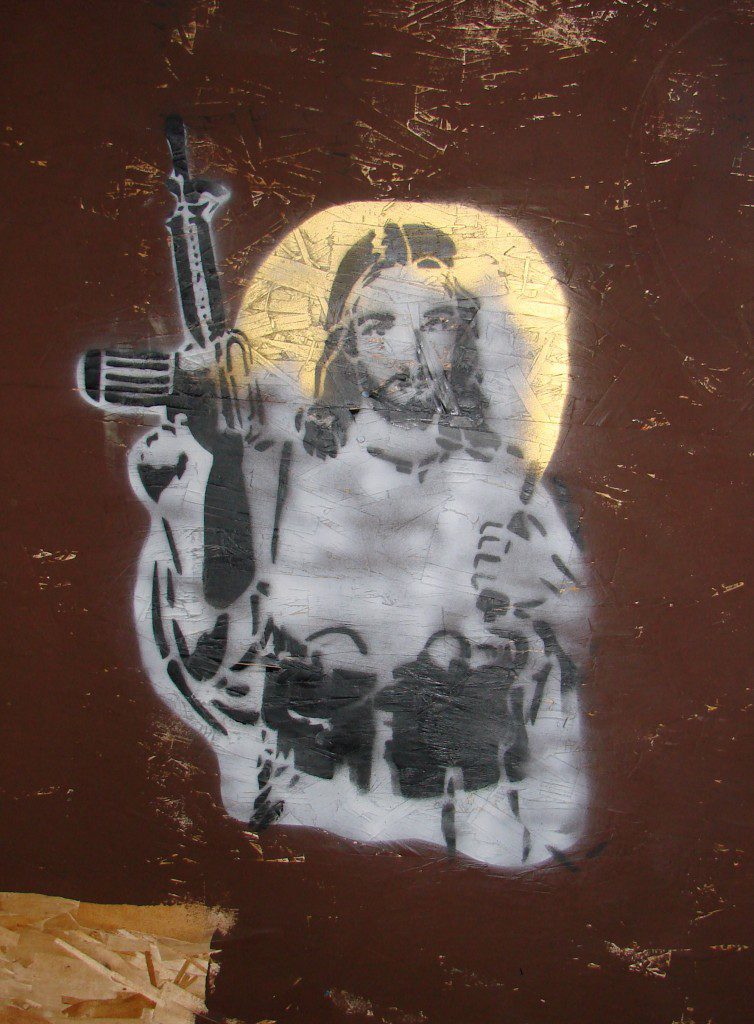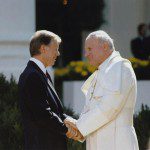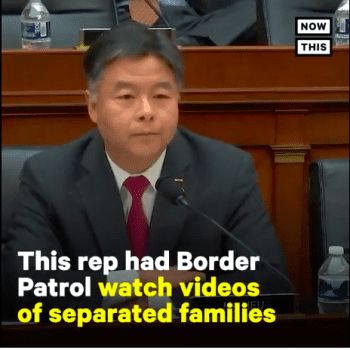Don’t be too quick to consider yourself unjustifiably prayer shamed, but keep praying.
We all are thinking about what happened in California today. Please keep the victims & their families in your prayers.
— Paul Ryan (@SpeakerRyan) December 2, 2015
We should all pray, if we pray, for all those who suffer. We should also pray for our enemies and those who harm others and ourselves.
It seems to make sense that many are fed up with the prayers of political leaders – people don’t want their prayers but their action. Is this #prayershaming?
One brother LarryD suggested that in being prayer shamed we are following the cross of Our Lord:
“Christ was mocked by the chief priests, elders, and scribes during His hour of greatest need. Still He asked God to forgive them. So us Christians being mocked by today’s literati and liberals just means we’re following Christ’s example,” he wrote.
Then said Jesus, Father, forgive them; for they know not what they do. Luke 23:34
I’m not sure we can say Jesus was prayer shamed, if I understand what prayer shaming is. Jesus was walking the walk and talking the talk – but the other way around. Jesus was talking the talk when he was answering Peter’s question:
Then Peter approaching asked him, “Lord, if my brother sins against me, how often must I forgive him? As many as seven times?” Jesus answered, “I say to you, not seven times but seventy-seven times. Matthew 18:21-22
Then Jesus followed that by walking the walk, again:
Then said Jesus, Father, forgive them; for they know not what they do. Luke 23:34
Prayer is good. Some people dedicate their entire lives to praying, and we’re better for it. Others, depending on their state and condition of life, should and do pray, but often have the ability and responsibility to put that prayer to work. If we don’t concretize our prayer, we may as well be faithless.
What good is it, my brothers, if someone says he has faith but does not have works? Can that faith save him? If a brother or sister has nothing to wear and has no food for the day, and one of you says to them, “Go in peace, keep warm, and eat well,” but you do not give them the necessities of the body, what good is it? So also faith of itself, if it does not have works, is dead. James 2:14-17
In James we see another call to talk the talk and walk the talk – to give our prayer life and substance. Saint John Eudes (1601-1680) would define prayer as the act of loving and being loved. Certainly, this manifests itself in different ways – but if we are presented with an opportunity to remedy a wrong, and don’t, “what good” is our prayer?
You can consider yourself a victim of prayer shaming and pat yourself on the back for choosing the way of the cross – but don’t you dare spit on the cross carried by the Word Made Flesh.
It is (the perception of, perhaps,) this exact failure to both talk the talk and walk the walk that appears to be so widespread among politicians (in this case, many republicans). This is the subject of prayer shaming.
No gun legislation is perfect – but the US Catholic Bishops seem to think there is plenty of room for legislative action: “They called on all Americans, especially legislators, to address national policies that will strengthen regulations of firearms and improve access to health care for those with mental health needs.”
Indeed, they “believe that in the long run and with few exceptions (i.e., police officers, military use), handguns should be eliminated from our society. ‘Furthermore, the widespread use of handguns and automatic weapons in connection with drug commerce reinforces our repeated ‘call for effective and courageous action to control handguns, leading to their eventual elimination from our society.'”
Laws cannot change hearts – both sides of the political spectrum will run to this for their political agenda. But laws can be useful in preventing wrongs. Imagine a world where we would have insisted, ‘Oh, please, we don’t need to abolish slavery … ‘ or ‘Oh, please, we don’t need environmental regulations… ‘ or ‘Oh, please, we don’t need a minimum wage … ‘ or ‘Oh, please, we don’t need to provide benefits for the poor … ‘ or ‘Oh, please, we don’t need to secure decent working conditions … ‘ or ‘Oh, please, we don’t need to make segregation illegal … ‘ Why? ‘ Because you can’t force charity’ or ‘Because the market is about supply and demand and this is what consumers want’ or ‘Because bad things happen’ or ‘Because hearts need to change, pray for hearts to change instead of these silly laws that no one will obey’.
What is all of this? Ignorance.
This reminds me of what Martin Luther King Jr. wrote concerning segregation:
Morality cannot be legislated, but behavior can be regulated. Judicial decrees may not change the heart, but they can restrain the heartless. The law cannot make an employer love an employee, but it can prevent hi from refusing to hire me because of the color of my skin. The habits, if not the hearts, of people have been and are being altered every day by legislative acts, judicial decisions, and executive orders. Let us not be misled by those who argue that segregation cannot be ended by the force of law.
For those of us who do not think we need more guns, we may consider: what legislation is useful for decreasing the amount of gun violence in our society?
Are we hopeless and believe none will be of use? (Then why insist on the force of law at other times?)
Or, are we choosing not to act, say we’re praying for victims, but are also unwilling to lose financial contributions to our political campaigns? (Then why cry foul when being prayer shamed?)
Some people identify as Catholic. Some of these Catholics are also in positions of great political power, that is, great responsibility.
How are these political figures informed by the teachers of the Catholic faith?
Jeb Bush doesn’t get his policy positions from the teachers of the Catholic faith. Marco Rubio reduces what is taught to mere opinion. Paul Ryan apparently knows better than Pope Francis.

So with Republicans perceivably waiting until the eschaton to push forward legislation, even after our recent tragedy in San Bernardino, we can at least expect plenty of prayers from our political leaders, as well as some prayer shaming in response.
Don’t forget to pray – but if you are in a position to act, do so. Write your elected officials if you are unable to do anything else in the political sphere. Of course, instead of embodying paranoia and racism, love your neighbors and share God’s peace.
Whether your a policymaker or not, don’t open yourself to being prayer shamed and don’t pretend to be following the path of Jesus when prayer shamed. Don’t insult Jesus Christ, who lived what he preached, by hiding behind his victimhood – pick up your cross and take off your mask. If there is no action to your prayer, don’t mislead your children into thinking such utterances constitute prayer. I suppose you can’t shame prayer if it isn’t really prayer – perhaps we should call it hypocrite-shaming.
“When you pray, you are not to be like the hypocrites; for they love to stand and pray in the synagogues and on the street corners so that they may be seen by men. Truly I say to you, they have their reward in full. But you, when you pray, go into your inner room, close your door and pray to your Father who is in secret, and your Father who sees what is done in secret will reward you…” – The Jesus
When I’m a hypocrite, I hope you call me one – and I really hope I don’t cry about it, create a hashtag, and post on social media how I’m a ‘victim’ of #hypocriteshaming.
Cheers,
If you have found the content on Keith Michael Estrada’s “Proper Nomenclature” to be useful, kindly consider supporting the cause with a donation.
Use the button below to donate through PayPal:![]()
Thank you!











